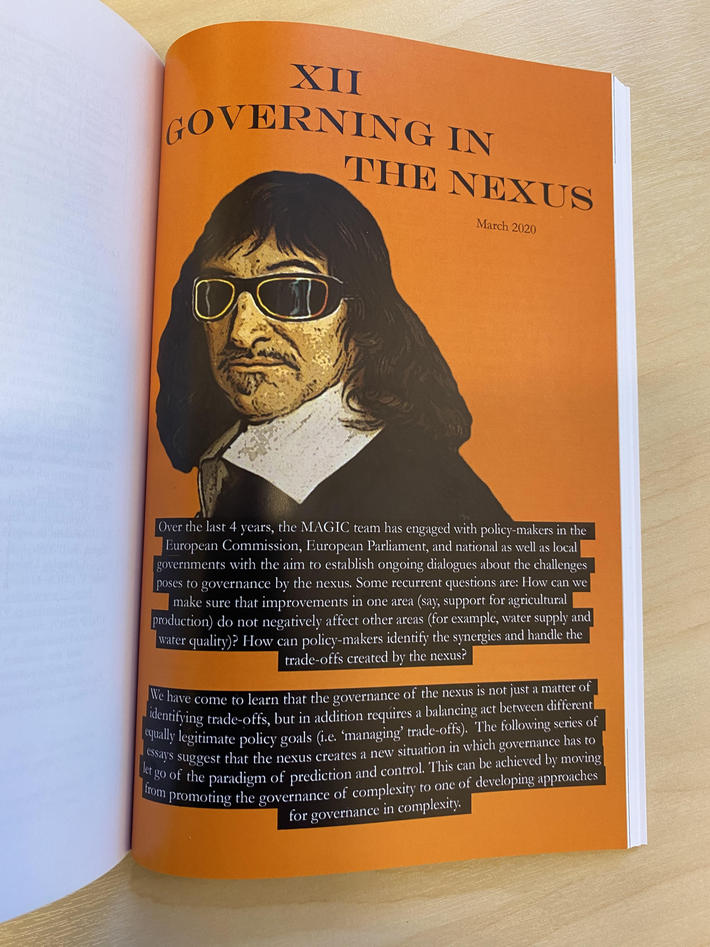Thought-provoking new book about sustainability
Researchers at UiB launch a new book in connection with the completion of the MAGIC project. The publication consists of the project members’ thought-provoking and radical ideas about sustainability.

Main content
In September 2020, the MAGIC project was completed after four years of interdisciplinary collaboration. The research project addressed and analyzed complex issues around sustainability, with the objective of finding new ways to address political issues in the connection between water, energy and food resources. The new book "The Nexus Times" is based on the project's newsletter, where the researchers present results and formulate opinion-based posts to a general audience.
«Lockdown» resulted in new book
According to the plan, the researchers were going to attend a number of conferences this spring and summer to share their results and analyses as part of the completion of the project. When COVID-19 abruptly put an end to these plans, the team from the University of Bergen quickly decided to change their communication channel and instead use part of the funds to produce a book.
– We choose to use a slightly more old-fashioned form of communication when we now present our insights from the project, says Roger Strand, PI for MAGIC at the Centre for the Study of the Sciences and the Humanities, UiB.
Sustainable regulation of water, energy and food
"The Nexus Times" documents four years of project results, discussions and, not least, thought-provoking and radical ideas. The book contains a wide range of topics, including sustainability, water management, agriculture and economics.
In particular, the book focuses on the complexities that arise around water, energy and food production and the sustainability in the policy and regulation of these areas.
Uncertainty in research and "uncomfortable knowledge"
Scientific uncertainty and complexity are recurring themes in MAGIC. In a number of studies, the project shows how current policy is based on oversimplifications and dubious assumptions. In this sense, the project has provided "uncomfortable knowledge" as defined by Steve Rayner: Knowledge that problematizes the narratives that legitimize current politics and institutional practices.
The project members advocate for the presentation of radical ideas and controversial content, including within the political commitment to the circular economy. Other aspects are about the uncertainty that characterizes the transition to renewable energy, and the biophysical unfeasibility in the current agricultural policies. Through "The Nexus Times," researchers have created an arena where issues that are classified as "uncomfortable" are addressed and elucidated.
Hope to engage the public
The book consists of a total of 15 chapters, each dealing with a unique theme. Every chapter consists of individual articles related to the chapter's topic. The book is built around a variety of themes and contains relatively short articles. Thus, it is imagined that the reader does not have to read the chapters in order:
– We want the reader to get involved in the parts of the book that stimulate his or her particular interest, says Roger Strand.
The articles in the book are meant to be easy to understand and accessible to a general audience, and at the same time engaging. The purpose of the book is thus to inspire debate and new thought patterns, and potentially motivate other researchers to take on sustainability issues with a new understanding of the complexities that surround them.



